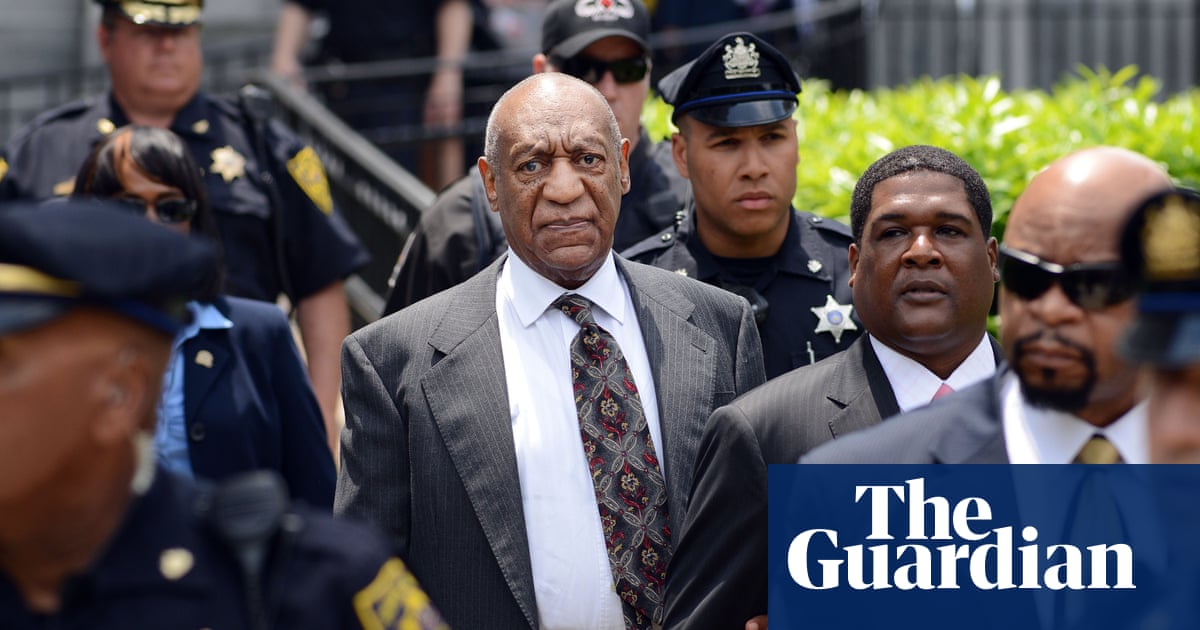
It was a law that gave voice to the victims of historical sexual assaults, and led to high-profile cases and settlements against prominent figures including Donald Trump, Sean “Diddy” Combs and Bill Cosby.
Now, New York’s groundbreaking Adult Survivors Act (ASA) is poised to expire, closing the door on the opportunity for survivors to have their stories heard and to seek justice for the wrongs and trauma they suffered years ago.
The law took effect on Thanksgiving Day last year after the New York legislature authorized a so-called “look-back period” for sexual assault cases where the statute of limitations had already run out.
Advocates predicted at the time that the temporary measure would turn a trickle of lawsuits in the state’s civil courts into a flood, and so it proved. When the act sunsets this Thursday, more than 2,500 actions will have been filed under the legislation.
They included some that made global headlines, with perhaps the most notorious writer E Jean Carroll’s $5m victory in a defamation and molestation case from 27 years earlier that branded Donald Trump a sexual abuser.
And just last week, hip-hop icon Combs settled an abuse case involving the singer Cassie, his former girlfriend, who alleged he viciously beat, drugged and raped her multiple times during their relationship that began in 2005.
Combs admitted no wrongdoing in the undisclosed financial settlement with his former partner, whose real name is Casandra Ventura. But the allegations were unlikely ever to have been aired but for the act’s existence.
“The Adult Survivors Act marks a monumental victory for survivors whose courage and commitment resulted in a viable path to justice and healing for thousands,” Liz Roberts, chief executive of the domestic abuse victim advocacy group Safe Horizon, said in a statement marking its expiry.
“The one-year look back window has enabled survivors to take back their power by pursuing a suit against the person who caused them harm, or a negligent institution, without fear of the statute of limitations.
“We are grateful to the survivors and advocates who fought so hard for the ASA to become law and support all survivors in their healing journey.”
Politicians also celebrated what the act was able to achieve. “Hundreds of survivors of sexual assault have sought justice through the act, but the window to file a case in court will soon close,” said Linda Rosenthal, a Manhattan Democrat who sponsored its passage through the New York legislature.
“Archaic laws have long shielded abusers and shut survivors out of the opportunity to have their voices heard and seek justice through the courts. With the work of Safe Horizon and many other advocates, the ASA has successfully given power back to survivors.”
Advocates believe that victories in high-profile cases gave confidence to other victims previously too frightened to speak out.
Often cited is the conviction last year for rape and sexual assault of the former movie magnate Harvey Weinstein. That case went before a jury in Los Angeles, so was not brought under the ASA. Last month, however, the English actor Julia Ormond filed a lawsuit in New York’s supreme court against Weinstein, Disney, Creative Artists Agency and Miramax alleging sexual battery after a business dinner in December 1995.
“I’m inspired by the courage of Julia Ormond, who filed a lawsuit to demand accountability from her abuser, Harvey Weinstein, and from Weinstein’s enablers in Hollywood, whose cumulative actions led to the derailment of her career,” said Drew Dixon, a member of Safe Horizon’s ASA coalition, in the group’s statement.
after newsletter promotion
“I’m grateful to have been part of the coalition of survivor-activists who helped make it possible for Ormond and all victims of sexual assault in New York to receive some modicum of justice.”
Dixon filed a lawsuit in Manhattan district court against Grammy-winning music executive and former X Factor judge Antonio “LA” Reid earlier this month, claiming he sexually assaulted her twice in 2001, then sidelined her career as an aspiring singer when she rejected his further advances. Reid has not yet responded to the lawsuit.
Advocates say the downfall of highly visible celebrities such as Weinstein and Bill Cosby, once thought untouchable, combined with the opening of the window for legal action heralded by the ASA, prompted many to seek their own justice.
Of the 2,587 electronic filings in New York state courts under the ASA by the end of last week, more than half were prison-related claims against the state, the Associated Press reported, with hundreds of additional filings naming New York City’s department of corrections.
“For so long, I didn’t have a voice. And it didn’t matter, I thought. Like, who was I?” said Alexandria Johnson, a former inmate who says she was raped multiple times while incarcerated in state prison and a New York City jail.
“I have to keep going forward with this because it matters. There’s so many stories, so many, not just mine.”
The ASA was based on New York’s 2019 Child Victims Act, which suspended the statute of limitations for lawsuits for a period later extended to two years during the Covid-19 pandemic. The law, which was criticized for excluding adult victims, saw almost 11,000 lawsuits by its August 2022 closure.
The adult version that expires this week was also set for a fixed term period, and regular statute of limitation rules for sexual assault lawsuits will apply again from Friday.
